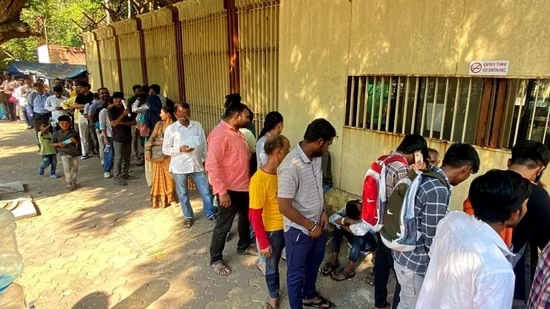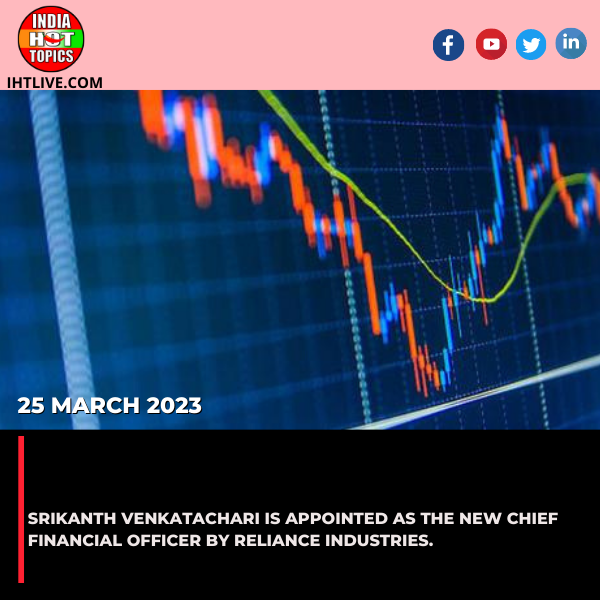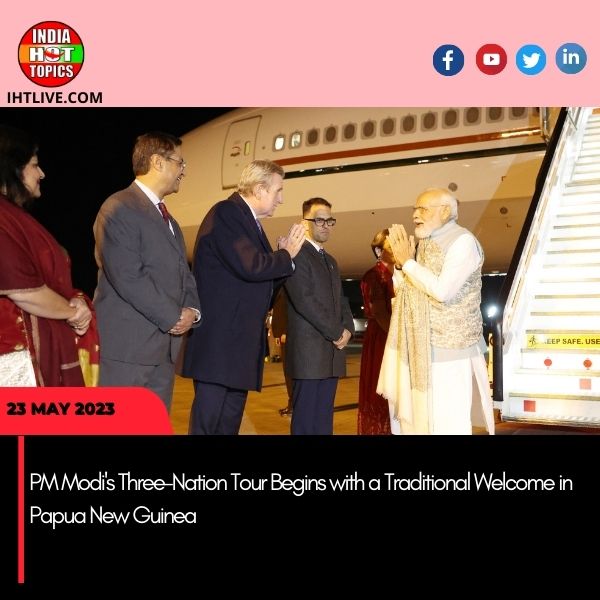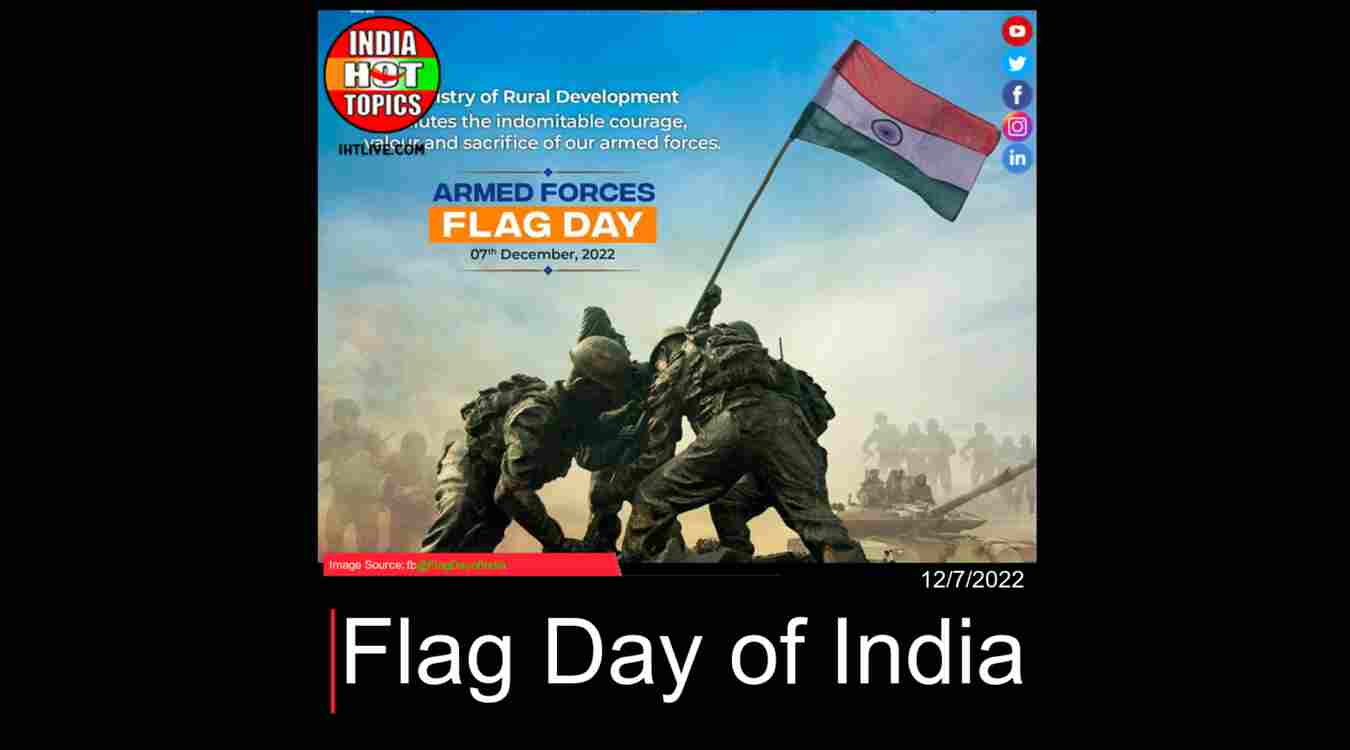India
Canada believes private diplomatic communications are preferable when discussing talks with India.
.jpg)
Diplomacy is often characterized by careful wording, behind-the-scenes negotiations, and the delicate art of maintaining international relations. In recent times, India and Canada found themselves at the center of a potential diplomatic dispute, but what’s intriguing about this situation is Canada’s stance on the matter – they firmly believe that diplomatic conversations are best kept in private. This approach demonstrates the importance of discretion in international relations and the nuances of modern diplomacy.
The Background: Trade Dispute Brewing
The diplomatic tiff between India and Canada emerged over a trade disagreement. Both countries had imposed tariffs and restrictions on certain imports, creating a situation that could have escalated into a full-blown dispute. However, Canada’s response was not to engage in public mudslinging but rather to call for private, diplomatic conversations.
This approach may seem counterintuitive in today’s era of instant information sharing through social media, but it embodies the principles that underlie effective diplomacy – discretion, respect, and a commitment to finding common ground.
The Importance of Private Diplomacy
Maintaining Dignity: Public spats between nations can quickly devolve into personal attacks and posturing, eroding the dignity and respect that should be at the core of international relations. Keeping discussions private allows both parties to address concerns without escalating tensions in the public eye.
Facilitating Open Dialogue: Private conversations offer a safe space for diplomats to express their concerns and explore potential solutions without fear of immediate public scrutiny. This openness often leads to more productive negotiations.
Preserving Room for Compromise: Publicizing disputes can create a “winner takes all” mentality, where both sides may feel compelled to maintain a hardline stance to save face. Private talks, on the other hand, provide room for compromise and creative problem-solving.
Preventing Miscommunication: Diplomatic conversations are complex and nuanced. In the public arena, statements can be misinterpreted or taken out of context, leading to further misunderstandings. Private conversations allow diplomats to clarify intentions and avoid miscommunication.
Fostering Trust: Trust is essential in diplomacy. When nations commit to keeping their discussions private, it demonstrates a level of trust and respect for one another. This trust can lay the foundation for more successful negotiations.
The Bigger Picture
The India-Canada situation serves as a reminder that diplomacy is not just about reaching agreements; it’s also about how those agreements are reached. Discretion and respect for one another’s positions are vital components of effective diplomacy. While the public may sometimes desire transparency in international negotiations, it’s crucial to understand that many complex issues are best resolved behind closed doors.
In a world where information flows freely, the ability to hold private diplomatic conversations becomes even more precious. It allows nations to navigate delicate issues without the pressure of public opinion and, more importantly, to find mutually beneficial solutions.
As the situation between India and Canada continues to unfold, we can draw important lessons about the power of discretion and the value of keeping diplomatic conversations private. It’s a reminder that in an interconnected world, diplomatic finesse remains a critical skill in maintaining peaceful and productive international relations.
General News Platform – https://ihtlive.com/
Entertainment News Platforms – anyflix.in
Construction Infrastructure and Mining News Platform – https://cimreviews.com/
Podcast Platforms – https://anyfm.i
Education
The first list is released at JAC Delhi for the 2025 seat allocation. Admissions.nic.in

The Joint Admission Committee (JAC) Delhi has announced the first round of seat allotment for the 2025 academic session. Students who have been allotted seats in this round are required to report to their respective colleges and complete all admission formalities between June 9 and June 18, 2025. This is an important step to confirm their admission and secure their seat.
To check the seat allotment result, candidates can visit the official JAC Delhi website at jacdelhi.admissions.nic.in. They will need their JEE Main application number and password to log in and view their seat allocation status. This online process makes it convenient for applicants to quickly know where they stand in the admission process.
The seat allotment covers some of Delhi’s top engineering and architecture institutes, including Delhi Technological University (DTU), Netaji Subhas University of Technology (NSUT), Indira Gandhi Delhi Technical University for Women (IGDTUW), and Indraprastha Institute of Information Technology Delhi (IIIT-Delhi). For this year, there are a total of 7,333 seats available for BTech courses and 90 seats for BArch courses under JAC Delhi.
It’s important for students who have been allotted seats to complete their admission process within the given timeframe to avoid losing their seat. Those who don’t get a seat in the first round or want to upgrade their choice can participate in further rounds of seat allotment, which will be announced soon. Keeping track of official notifications on the JAC Delhi website is essential for timely updates.
Reporting & Admission Dates
Candidates who have secured a seat in Round 1 must report to their allotted institute between June 9 and June 18, 2025. Admission formalities like document verification and fee payment must be completed during this period.
Top Institutions in JAC Delhi
- Delhi Technological University (DTU) – Highly sought-after for CSE, ECE, and Mechanical branches.
- Netaji Subhas University of Technology (NSUT) – Strong in AI, IT, and automation fields.
- IGDTUW – Focused on empowering women through technical education.
- IIIT-Delhi – Renowned for Computer Science, Data Science, and interdisciplinary tech programs.
Seat Allotment Trends
- CSE and AI remain the most competitive streams.
- Students with higher JEE Main ranks were able to grab top choices.
- EWS and OBC quotas saw a sharp increase in cut-offs compared to previous years.
📎 What to Do Next
Candidates who didn’t get a seat or wish to upgrade can participate in the next rounds. Ensure that all required documents (10th/12th marksheets, JEE scorecard, category certificates) are ready.
The much-anticipated Round 1 seat allotment for JAC Delhi 2025 has officially been released, marking the beginning of the admission journey for thousands of engineering and architecture aspirants across India. For many students, this announcement is the culmination of months of preparation, dedication, and high-stakes competition through the JEE Main exam.
The seat allocation process provides clarity on which college and course they have secured, paving the way for the next important steps—reporting to the allotted institution, verifying documents, and paying the required fees within the given window from June 9 to June 18.
This first round is a crucial milestone, especially for those aiming to grab seats in highly competitive branches like Computer Science, Artificial Intelligence, and Data Science. Students who may not have received their preferred course or college still have the option to participate in subsequent rounds, which allows for better positioning based on availability and merit.
The JAC Delhi counselling process is unique because it brings together some of the most reputed engineering institutions in the capital under one umbrella. Unlike other centralized admission systems in India, JAC Delhi caters exclusively to students applying through the JEE Main scores and seeks to ensure a transparent, merit-based seat distribution. With limited seats and sky-high demand, even a slight change in rank or category can significantly affect a student’s chances of getting into their desired stream or college. This makes each round—especially the first—extremely strategic for aspirants.
This year, the response to the first round of seat allotment was intense, with a large number of students quickly logging in to check their allocation status on the official JAC Delhi portal. Due to the high traffic, the site experienced occasional slowdowns, but most students were able to access their results by mid-day. For many, the moment was filled with either celebration or planning their next move—be it accepting the allotted seat or preparing for the upgrade round.
Colleges like DTU and NSUT have continued their tradition of attracting top JEE Main rankers, especially in branches like Computer Science, Electronics & Communication, and Artificial Intelligence. The cut-off for CSE at DTU has again seen a sharp upward trend, reflecting the consistent popularity and industry-aligned curriculum the college offers. On the other hand, IIIT-Delhi continues to appeal to students who are focused on research, data science, and niche tech domains, even though it follows a different fee and admission model.
One of the most appreciated aspects of the JAC Delhi process is its inclusion of the Indira Gandhi Delhi Technical University for Women (IGDTUW), which focuses on empowering female students in the STEM domain. The university has seen a rise in applicants this year, particularly in BTech streams related to IT, AI, and cybersecurity. The specialized infrastructure, women-centric ecosystem, and growing placement record make IGDTUW a strong contender among the JAC Delhi institutions.
As students begin the admission formalities for Round 1, there’s a strong emphasis on ensuring that all submitted documents are accurate and updated. Any mismatch in the personal information, category certificates, or academic records can lead to the cancellation of the allotted seat. Counsellors advise students to double-check their documentation and prepare for physical reporting at the respective college without delay. Since the reporting window is narrow—only from June 9 to June 18—timely action is critical.
- Group Media Publication
- Construction, Infrastructure and Mining
- General News Platforms – IHTLive.com
- Entertainment News Platforms – https://anyflix.in/
India
Covid 19 India Cases Live Updates: Active cases rise to nearly 5,000, 7 deaths reported in 24 hours
.jpg)
State-wise Breakdown
Kerala remains the most affected state, with 1,487 active cases. Delhi and Maharashtra follow, reporting 562 and 526 active cases respectively . Other states such as Gujarat, Karnataka, West Bengal, Tamil Nadu, and Uttar Pradesh have also seen noticeable increases in active cases.
Emerging Variants and Diagnostic Challenges
The resurgence is partly attributed to new variants, notably NB.1.8.1, which exhibit higher transmissibility. These variants often present with milder symptoms resembling common colds or flu, such as low-grade fever, fatigue, and cough. This similarity complicates timely diagnosis and may lead to underreporting .
Government Response and Public Health Measures
In response to the uptick in cases, health authorities have conducted review meetings and directed states to ensure readiness with essential supplies. The public is urged to maintain hygiene and seek medical attention if experiencing respiratory symptoms as the ministry closely monitors the situation .
Public Advisory
Health experts advise the public to remain vigilant. Individuals experiencing symptoms such as fever, cough, or fatigue should seek medical advice promptly. High-risk groups, including the elderly and those with underlying health conditions, are particularly encouraged to take preventive measures.
India is once again witnessing a slow but worrying uptick in COVID-19 cases, prompting health experts and officials to revisit pandemic protocols that had largely faded from public memory. As per the latest data released by the Ministry of Health and Family Welfare, the number of active COVID-19 cases in the country has climbed to approximately 4,866, marking a noticeable increase over the past few days. In the preceding 24-hour period alone, India reported 564 new cases and seven deaths attributed to COVID-related complications.
Among the deceased is a five-month-old infant, serving as a grim reminder that the virus remains dangerous across all age groups. While this resurgence is nowhere near the peak levels seen during the Delta or Omicron waves, the rapid climb from under 2,000 active cases just weeks ago has raised concerns about a potential localized outbreak or seasonal spread. Kerala, which has historically experienced higher caseloads during previous waves, currently tops the chart with nearly 1,487 active cases.
Delhi follows with 562 cases, and Maharashtra stands close behind at 526, indicating that urban and densely populated regions continue to be hotspots. Other states such as Tamil Nadu, Karnataka, West Bengal, Gujarat, and Uttar Pradesh are also reporting a steady rise in daily case counts, although they remain under the 500 mark.
What adds complexity to the current situation is the emergence of new sub-variants, notably NB.1.8.1, which appear to be driving the present surge. Unlike earlier strains, this sub-variant is said to spread faster but often manifests in symptoms that mimic those of seasonal flu — such as low-grade fever, dry cough, fatigue, and occasional sore throat — making detection difficult without targeted testing.
In many cases, infected individuals initially assume they are suffering from the common cold or seasonal allergies and delay seeking medical care, increasing the risk of community transmission. Doctors across hospitals in metro cities have reported that several patients only test positive for COVID after secondary or tertiary symptoms emerge, often resulting in a lag in treatment and isolation measures.
This diagnostic challenge is also contributing to underreporting, as people shy away from testing unless symptoms become severe. Experts warn that such complacency could lead to undetected clusters and recommend that anyone experiencing prolonged flu-like symptoms undergo testing, particularly those with underlying health conditions or weakened immunity.
In response to the rising case numbers, the Indian government has begun taking precautionary steps. Union Health Minister-led review meetings have been conducted to assess state-level preparedness.
Hospitals have been instructed to stock up on essential supplies, including PPE kits, oxygen cylinders, antiviral medication, and to ensure that ICU beds and isolation wards are functional. States have been directed to revive COVID war rooms and surveillance systems temporarily, especially in high-risk zones and transportation hubs.
District health officials in Kerala and Maharashtra have already reinstated mobile testing vans in public places like railway stations, airports, and markets to ensure early identification of potential cases.
However, authorities are treading a careful line, avoiding full-blown restrictions to prevent public panic or economic disruption, and instead focusing on enhanced monitoring and communication.
Public health advisories have also been updated. Citizens are encouraged to practice respiratory hygiene, such as wearing masks in crowded indoor spaces, regularly sanitizing hands, and maintaining physical distancing wherever feasible.
Those experiencing flu-like symptoms are advised to avoid public gatherings and seek medical consultation at the earliest. Booster vaccinations, although no longer mandatory, are being strongly recommended for vulnerable populations — including senior citizens, people with comorbidities, and frontline workers. While vaccination rates in India remain high, especially in urban centres, health authorities are now encouraging states to initiate local awareness drives to encourage booster uptake, particularly in semi-urban and rural regions.
Recent genome sequencing reports suggest that while the current strain does not lead to severe hospitalization in most healthy individuals, patients with coexisting illnesses — such as diabetes, respiratory diseases, or cardiac conditions — may face higher risks, necessitating timely intervention.
Educational institutions and offices have been advised to remain alert and monitor the health of students and staff. So far, no decisions have been made regarding closures or reverting to remote operations. However, many IT companies have begun recommending hybrid work setups once again, especially for employees showing even mild symptoms of illness.
In schools and colleges, periodic screening and health monitoring initiatives have been reintroduced. Several private hospitals in Bengaluru, Chennai, and Mumbai have reported a modest increase in the number of walk-in patients requesting COVID tests over the past week — a sign that public awareness is gradually rising. However, experts caution that proactive measures must continue if the country is to avoid a repeat of past surges.
Adding to the complexity is the simultaneous occurrence of seasonal flu outbreaks in several parts of the country, particularly in North India, where weather fluctuations are common during this time of year. Many doctors are finding it difficult to distinguish between influenza and COVID-19 without proper diagnostic tests, further burdening healthcare infrastructure.
Although hospitalizations remain relatively low, the medical community is urging people not to take the current wave lightly. They emphasize that a small percentage of infections can still evolve into serious respiratory complications requiring hospital admission, especially if diagnosis or treatment is delayed.
Public sentiment, meanwhile, remains mixed. After enduring multiple lockdowns and disruptions since 2020, many citizens are understandably fatigued by the reappearance of COVID-related headlines. While some have returned to mask-wearing and hand hygiene habits, others continue to treat the situation casually, attributing symptoms to routine flu or dust allergies. This divide poses a challenge for public health messaging, which needs to strike a balance between awareness and alarm. Social media platforms are also being monitored to curb the spread of misinformation and fake remedies that tend to gain traction during health emergencies.
In conclusion, while the number of active COVID-19 cases in India remains well below critical thresholds, the recent spike underscores the virus’s continued presence and adaptability. The emergence of new variants, combined with milder symptoms and reduced public vigilance, creates a fertile ground for future flare-ups.
Government agencies, healthcare professionals, and citizens must now work together to ensure that India’s hard-earned progress in pandemic management is not undermined by complacency. With schools open, festivals around the corner, and increased travel across the country, it is imperative that basic precautions be maintained. Timely diagnosis, voluntary isolation, mask usage, and booster vaccination are simple yet powerful tools that can help India prevent another wave from escalating into a crisis.
- Group Media Publication
- Construction, Infrastructure and Mining
- General News Platforms – IHTLive.com
- Entertainment News Platforms – https://anyflix.in/
India
‘India hosts G20, Pakistan hosts T20’: Sena (UBT) MP Priyanka Chaturvedi’s ‘top terrorists’ swipe at Islamabad
.jpg)
Shiv Sena (UBT) MP Priyanka Chaturvedi recently made a pointed remark contrasting India’s global leadership with Pakistan’s alleged support for terrorism. Speaking to the Indian diaspora in London, she stated, “While we host the G20, they host the T20—the top 20 terrorists of the world,” implying that Pakistan provides shelter to some of the most wanted terrorists globally.
She further criticized Pakistan’s duplicity, saying it “shakes hands with you and then bites you on your back,” referencing the discovery of Osama bin Laden in Pakistan despite its alliance with the U.S.
Chaturvedi also drew a parallel between India’s pursuit of Free Trade Agreements and Pakistan’s alleged “Free Terrorism Arrangement,” highlighting the stark differences in their international engagements. Her comments were part of a broader effort by an Indian parliamentary delegation to expose Pakistan’s purported state-sponsored terrorism on the global stage.
This rhetoric aligns with previous statements by Indian leaders. For instance, during the G20 Summit in 2017, Prime Minister Narendra Modi emphasized that “some nations are using terrorism for achieving political goals,” equating Pakistan-based groups like Lashkar-e-Taiba and Jaish-e-Mohammed with global terror organizations such as ISIS and al-Qaeda.
India’s consistent stance has been to urge the international community to isolate and sanction nations that support terrorism, advocating for a unified global response to combat the menace effectively.
In a pointed and politically charged remark, Shiv Sena (UBT) MP Priyanka Chaturvedi recently stirred debate by contrasting India’s global leadership with Pakistan’s alleged harboring of terrorism. Speaking to members of the Indian diaspora in London, Chaturvedi quipped, “India hosts the G20, Pakistan hosts the T20—the top 20 terrorists of the world.” While wrapped in wit, the statement reflects a broader and long-standing diplomatic contention between India and Pakistan over the issue of cross-border terrorism.
India, under Prime Minister Narendra Modi’s leadership, has increasingly positioned itself as a global economic and strategic player. Its hosting of the G20 summit in 2023 was seen as a landmark moment, not only diplomatically but also symbolically. India showcased itself as the voice of the Global South, a nation committed to sustainable development, digital innovation, and multilateral cooperation.
In stark contrast, Chaturvedi’s barb underscores India’s frustration over Pakistan’s alleged inaction against terrorist networks operating within its borders—a concern that has been echoed in international forums.
The “T20” remark, while humorous in form, is a critique of the perception that Pakistan continues to serve as a safe haven for individuals and organizations involved in terrorism. For decades, New Delhi has maintained that Pakistan-based groups like Lashkar-e-Taiba, Jaish-e-Mohammed, and others have orchestrated attacks on Indian soil, including the 26/11 Mumbai attacks and the 2019 Pulwama bombing. Chaturvedi’s statement aligns with this narrative, essentially accusing Pakistan of continuing to shelter elements that threaten regional stability.
The international community has taken note of these allegations. Multiple global bodies, including the Financial Action Task Force (FATF), have placed Pakistan under scrutiny. Although Pakistan was removed from the FATF’s “grey list” in 2022 after making certain legislative and financial reforms, many believe that the underlying infrastructure of extremism still finds space in parts of the country. Indian leaders have consistently pointed to this as a security threat not just for India, but for the wider world.
What adds to the irony, and perhaps the bite, of Chaturvedi’s comment is the use of the “T20” term—normally associated with a popular format of international cricket.
Cricket is a shared passion between India and Pakistan and often serves as a tool of diplomacy and people-to-people contact. Yet here, the term is used to convey an ominous message, repurposed to signify terrorism rather than sport. It reflects how deeply entrenched the issue of terrorism has become in bilateral relations between the two neighbors, to the point that even cultural metaphors are drawn into the fray.
Her statement also speaks to the growing confidence of India’s political class in taking a firm, often vocal, stand on international platforms. Gone are the days when Indian leaders shied away from publicly naming Pakistan in global settings. Today, Indian representatives, whether at the United Nations, G20, or bilateral meetings, are direct in their language. Chaturvedi’s speech to the Indian diaspora fits into this larger strategic posture: vocal, assertive, and unapologetic.
Critics may argue that such rhetoric contributes little to actual diplomatic resolution and could exacerbate tensions. But supporters see it as a necessary counter-narrative to what they view as Pakistan’s continued denial of its role in sponsoring or turning a blind eye to terrorism. For the Indian diaspora—particularly in Western countries—such remarks often serve to rally support, both emotionally and politically, for India’s position on security and foreign policy matters.
Furthermore, Chaturvedi’s allusion to Osama bin Laden’s presence in Abbottabad, Pakistan, is a reminder of past controversies. The fact that the world’s most wanted terrorist was found living in a compound near a major military academy in Pakistan shocked global observers. That episode has become symbolic of the suspicions many hold regarding Pakistan’s internal contradictions—fighting terrorism in some quarters while allegedly enabling it in others.
Chaturvedi didn’t stop at the T20 analogy. She also drew a comparison between India’s pursuit of Free Trade Agreements (FTAs) and what she termed Pakistan’s “Free Terrorism Arrangement.” It’s a biting turn of phrase meant to emphasize the contrasting paths the two countries have taken on the global stage. While India negotiates trade deals and pushes economic growth, the insinuation is that Pakistan has allowed itself to become entangled in a network of extremist patronage and international suspicion.
These rhetorical flourishes are not made in a vacuum. They reflect a domestic political climate in India where national security remains a top priority. With general elections approaching, and with nationalistic sentiment often influencing electoral behavior, such statements serve both foreign and domestic policy objectives. They reinforce the narrative of a strong India standing up to global threats, and they appeal to voters who prioritize national integrity and security.
However, the use of such language also raises questions about diplomatic tone. While sharp rhetoric can capture headlines and galvanize public opinion, it may limit the space for back-channel diplomacy and peaceful negotiation. India and Pakistan, after all, remain nuclear-armed neighbors with a complex history. They share borders, cultural ties, and economic potential that are frequently overshadowed by their political disagreements.
Chaturvedi’s comments should also be viewed in light of increasing efforts by India to shape global perceptions. Indian diplomacy is now intertwined with strategic communication, where narratives are as important as negotiations. Terms like “Terroristan” and “T20 terrorists” are part of a larger toolkit of persuasive language aimed at influencing how the world sees South Asia’s security challenges.
It is also worth noting that such messaging often resonates with international audiences who have themselves been affected by terrorism. Countries in the West that have faced attacks on their soil may find a natural ally in India’s tough stance. Thus, Indian leaders—parliamentarians, diplomats, and ministers alike—are increasingly comfortable invoking sharp, memorable phrases to drive home their point.
In the end, Chaturvedi’s “G20 vs T20” statement is emblematic of a broader geopolitical reality. It highlights the competing narratives of two neighboring nations with vastly different global aspirations. India seeks to be a rule-maker in the global order, advocating for cooperation, innovation, and economic integration. Pakistan, on the other hand, finds itself battling persistent accusations of terrorism support, struggling to reshape its global image despite efforts at reform.
Whether such rhetoric will lead to constructive change remains to be seen. But one thing is clear: the verbal sparring between India and Pakistan is no longer limited to official statements. It now occupies global stages, diaspora gatherings, and international media, shaping public perception in ways that formal diplomacy often cannot. Chaturvedi’s comments are just one example of how political messaging, laced with satire and criticism, has become a powerful tool in the evolving India-Pakistan relationship.
- Group Media Publication
- Construction, Infrastructure and Mining
- General News Platforms – IHTLive.com
- Entertainment News Platforms – https://anyflix.in/
-
Tech5 months ago
Best Zebronics Bluetooth speakers you can buy today for an unmatched audio experience
-

 India2 years ago
India2 years agoNew Season 8 The Walking Dead trailer flashes forward in time
-

 India2 years ago
India2 years agoThe afternoon briefing revealed that 97.26% of the ₹2000 notes were returned, and the Israeli Prime Minister committed to war goals.
-

 World1 year ago
World1 year agoMichigan splash pad attack: A couple was shot seven times in total while defending their two small daughters.
-

 India2 years ago
India2 years agoSrikanth Venkatachari is appointed as the new chief financial officer by Reliance Industries.
-

 India2 years ago
India2 years agoPM Modi’s Three-Nation Tour Begins with a Traditional Welcome in Papua New Guinea
-

 Special 365 days3 years ago
Special 365 days3 years agoFlag Day of India
-

 India8 years ago
India8 years agoThe 9 worst mistakes you can ever make at work









.jpg)
.jpg)
%20(1).jpg)